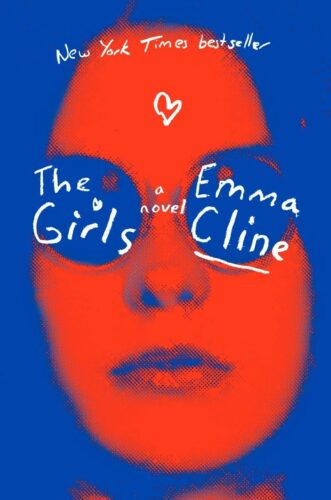 A Fictionalized Version of the Manson Cult
A Fictionalized Version of the Manson Cult
Author: Emma Cline
In The Girls author Emma Cline utilizes a fictionalized account to try and answer the long-time mystery: what made the Mason cult murder? How did Charles Manson, the pseudo-religious group leader, talk the others into such atrocities? How did normal girls become killers?
In this story, we see a similar commune through the eyes of 14-year-old Evie, who has become charmed by the seeming freedom of the older girls and is running away from her rich, yet ultimately isolated life. Evie is most fascinated by the figure of Suzanne, and her fascination and hero worship soon turns into a dark obsession that leaves her vulnerable to the cult, its rarely seen leader, and her burgeoning sense of self.
Despite the explosive concept of The Girls and the real-life story it is clearly drawing upon, the narrative is hardly insightful or particularly exciting. Evie is not part of the final murders, and while she imagines them and wonders at her friend’s ability to kill, especially a little child, and her own internal capabilities (what would she have done if she’d been there that night?), she has no true insight. She is just as much of an outsider in the cult as she was in her shattered home, where her absentee mom was more interested in dating and her clueless father incapable of reaching out to a vulnerable teenage girl.
Evie is a difficult protagonist to like. She is morally grey, of course, and is led by her teenage desire to be seen and loved. This should make us empathetic: that desperation for belonging, for affection, yet in the way it is delivered, and with the mix of Evie’s adolescent and adult voice, she comes across as both selfish and lackluster. She has no real action in the story, but is merely there, an observer who sees very little of the actual cult’s inner workings and has no true wisdom to share. The girls around her, and the mostly absent cult leader, are just as much a mystery to her as they are to us, and in the end, the only real insight is that teenagers are easily lead. We knew this already.

Image by Entre_Humos from Pixabay
Evie’s obsession with Suzanne, which grows into a sexual longing, is equally untenable. It has the dry feeling of something told, but never felt. Perhaps this is because of the beautiful, but overwrought prose which distances us and blunts the emotions. Perhaps this is because Evie herself is so inert, so outside the very story that she is telling, perhaps this is because there is no momentum at all, the true action happens off camera forcing us to speculate.
We also have a “now” timeline with an adult and equally adrift Evie who has shown no personal growth. She is staying in a friend’s house and judging that friend’s son and his young girlfriend, seeing how the girlfriend is going down the same path – willing to do anything to fit into the clique. It doesn’t mix well with the past story, the two never truly connect, and it only shows what a staid character Evie is, how little she has changed from the annoying teenager who tried to fit into a cult but was ultimately a little too white-bread-bland to make the cut.
The Girls makes some big promises, but the story disappoints. It stands on the shoulders of real events but is unable to take the literary jump into meaning. It’s not a horrible read, at least for someone like me, who can and does read books quickly, but it’s not a particularly good or memorable story. Nothing new here is shared, and the fancy, flourished writing fails to hide the story’s lack of substance and the characters utter blandness. Not recommended.
– Frances Carden
Follow my reviews on Twitter at: https://twitter.com/xombie_mistress
Follow my reviews on Facebook at: https://www.facebook.com/FrancesReviews
- Book Vs Movie: The Shining - April 6, 2020
- Thankful For Great Cozy Mysteries - December 13, 2019
- Cozy Mysteries for a Perfect Fall - October 20, 2019


